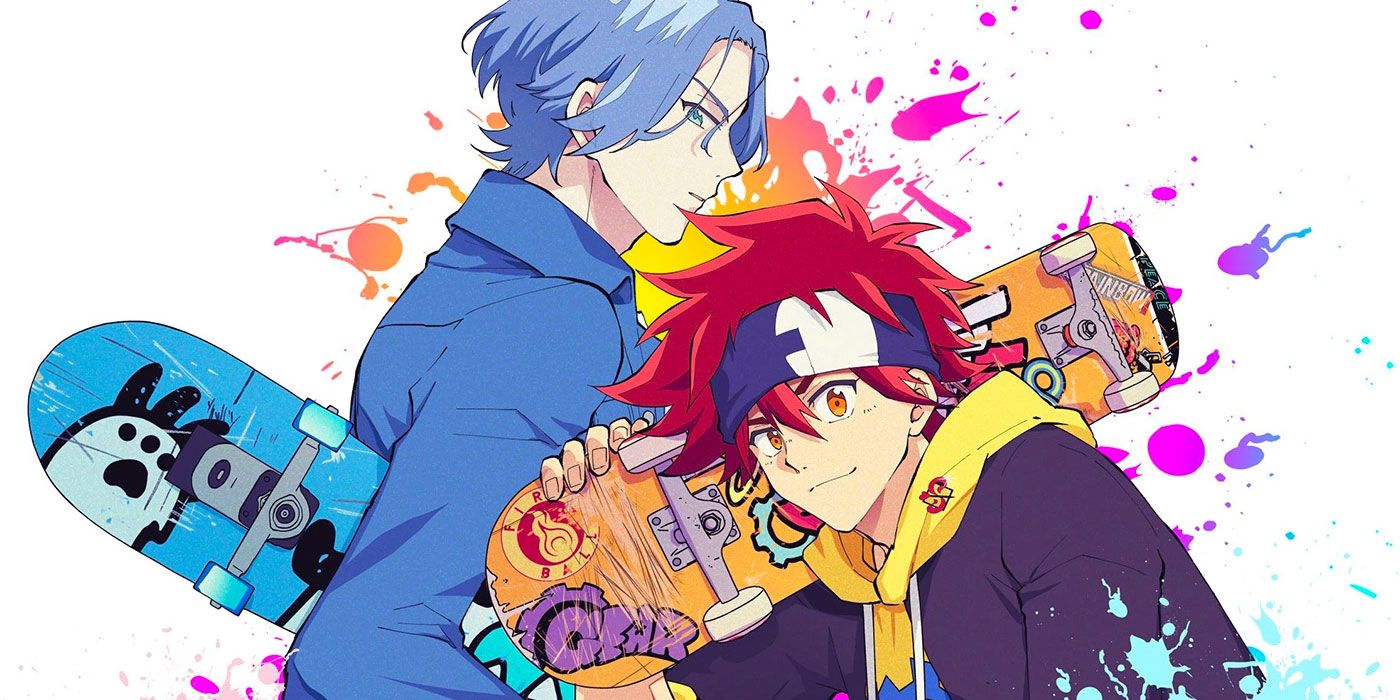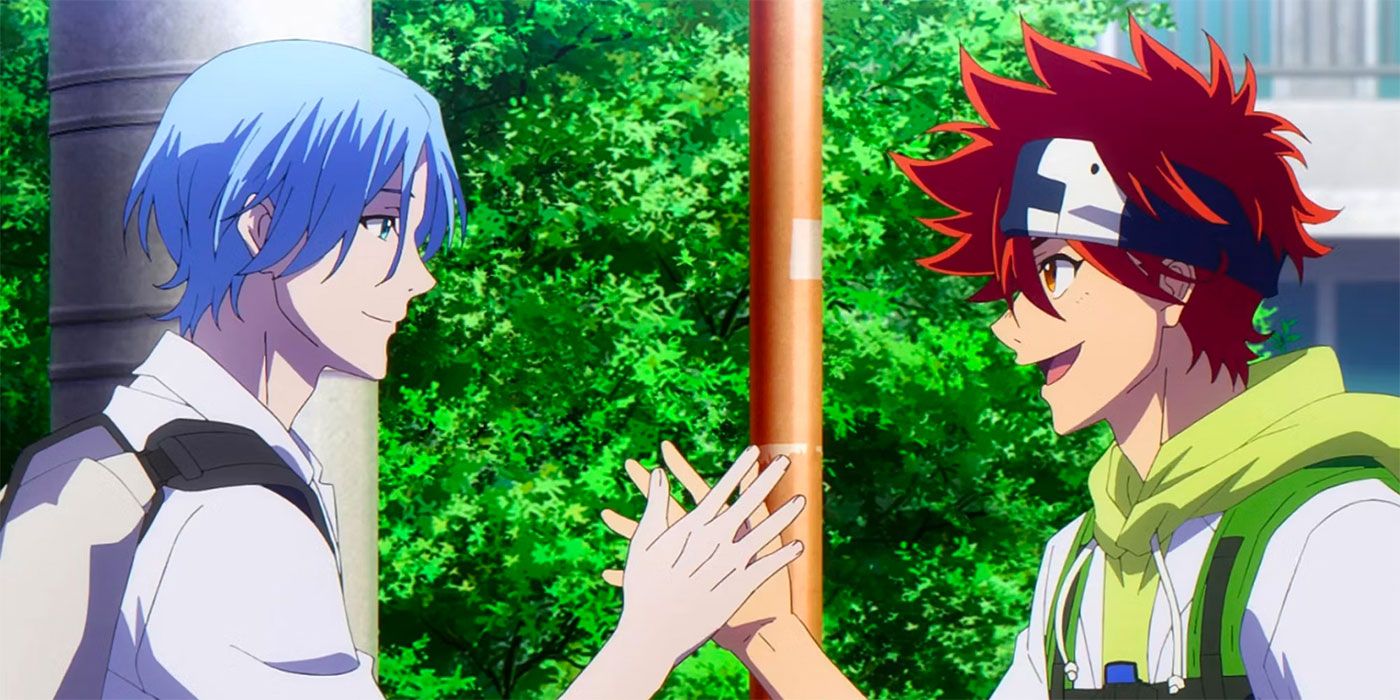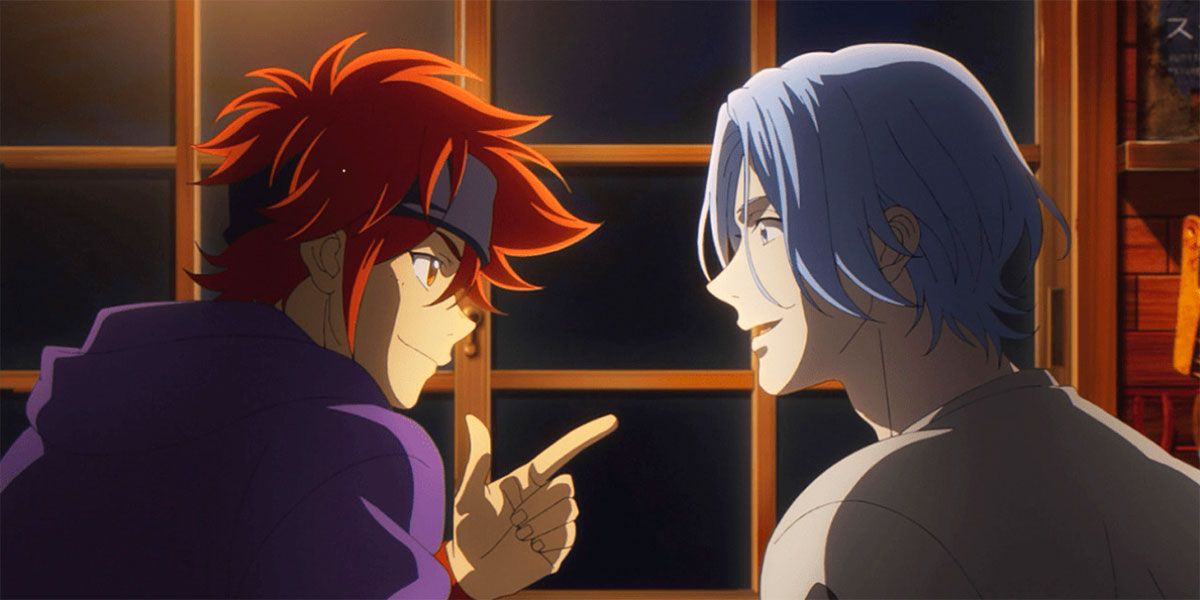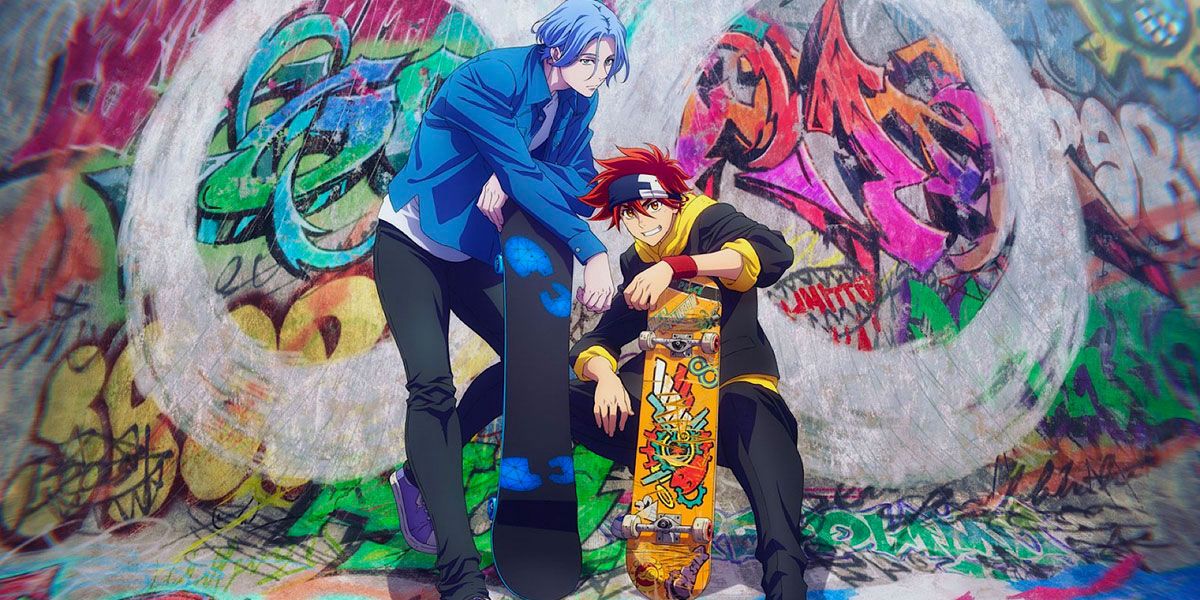Usually, when someone has a great passion for something, it’s framed as a wholly wonderful thing.
And for the most part, it is! Passion is what drives people to reach new heights, what inspires them to keep going day after day. Whether it’s passion for a specific item, piece of media, activity, or topic, it’s what makes the world a bright and vibrant place.
However, there are darker sides to it. We don’t often think about the way passion can consume us; it makes failures more devastating and can create divides between other people that share the same feelings. Sk8 the Infinity is a series that manages to capture both the highs and lows of passion, and how it can create difficulties not only between people but between a person and their love for something.
In particular, we see this through Reki’s development in the series. Reki's first love is skateboarding; he loves everything about it, from actually skating to designing boards. He will talk to anyone who will listen about it, and ultimately, this is how he becomes friends with Langa. He’s overjoyed to have someone to share his passion with, and genuinely enjoys teaching and skating with him. In this sense, Sk8 the Infinity does an amazing job of capturing the wonders of being so in love with something. It makes you want to share it with people and help them experience the same joy you do. You make friends with people that share the same passion, and it only furthers the love that you have for something.
But, in Reki’s case, skateboarding does have a downside. It’s a sport – an activity that requires a lot of practice and some amount of natural physical ability. When it comes to having a love for anything like that, where talent and ability can be measured, it puts people in competition with one another. There will always be someone better than you, especially when you aren’t a professional, and they may be younger than you, or newer to the sport. This is when we see the negative aspects of passion begin to play a role in Sk8 the Infinity. Langa is relatively new to skateboarding, and in the first few episodes, we see that he’s rather rough around the edges, even with his background in snowboarding working in his favor. Reki builds a board tailored to Langa’s strengths, factoring in the need for wheels that pivot a certain way and for a board shape that more closely resembles a snowboard. But as the show progresses, we begin to see that Langa is a natural at the sport. He’s able to blow away seasoned skaters, perform tricks better than professionals, and even skates on par with Adam, who is considered the best skater at S.
However, Reki can’t quite reach the same height.
No matter how hard he tries, Reki is left behind in terms of skill. Langa’s natural abilities make him feel inferior, and this deeply impacts not only his relationship with Langa, but his relationship with skateboarding. Ultimately, this is the tragedy that comes with passion; when someone outpaces you in a thing you hold so dear, it is devastating. It’s a huge blow to your self-esteem, and we see this very clearly as Reki pulls away from Langa in the series. He feels like he’s no longer useful to Langa or to anyone else. He’s angry at himself for being stagnant, unable to reach the same heights as his friends despite having to work twice as hard as them. He feels as though he’s invisible; he’s only the guy that shows up with the star skater. In his despair, he’s unable to connect with his passion and all the pieces of it he can utilize that don’t involve physical ability, such as building boards to enhance his skating.
The series handles Reki’s feelings of insecurity and anger incredibly well. When you feel inadequate, it’s common to feel strong emotions, and this is something that is often shied away from. With Reki, we get to see how his passion makes him push people away and how it sends him into an episode of depression where he isn’t skating or speaking to his friends. However, it’s made clear that this isn’t because he’s upset with the people around him; he’s angry at himself, at the passion that he feels has let him down because he can’t keep up when it comes to expertise. While the series allows Reki to have these feeling and express them, going as far to lash out at Langa, it doesn't paint him as an antagonist. Instead, the series chooses to focus on the effect Reki's pain has on others and how his friends come to his aid without ever invalidating his feelings.
It’s a good angle to take as it turns Reki’s passion for skateboarding into one of the series’ biggest conflicts as well as its biggest motivator. The story is set in motion by Reki’s love being spread to Langa (and to Miya, to an extent), and the story ends with Reki finding that love again in simply enjoying skating without comparing himself to anyone else. But in between, Reiki’s passion becomes destructive as he tries to keep up with his friends, and this ultimately causes the major issues of the series, particularly Langa and Reki’s falling out.
In addition to Reki, Miya is also an example of the duality of passion, though in the opposite sense. Miya has lost his passion for skateboarding because he made it to the top. Before becoming a professional, he loved skating with his friends, and that led him to pursue it as a career. Once that happened, though, he found that it was no longer fun; he’d lost his friends and his love for the sport, and he seems to find it once again as he skates with Reki. This shows yet another downside to having a great passion. Sometimes, a passion isn’t meant to be profitable, and when it becomes a career, it loses the potential for growth and innovation beyond the confines of rules. Considering Miya's age, it’s unfortunate to see that he’s learned this lesson so young. Though, it is good to see his passion reignited as he connects with his friends.
Sk8 the Infinity is fundamentally about passion. It’s about having so much love for something that it can both create and destroy, and there’s no better example of this than Reki. While some series don’t delve into the negative aspects of passion, this anime doesn’t try to hide it; it puts it front and center, showing how passion amplifies failure and feelings of doubt. It’s something that makes the series feel more relatable while also making it unique in a sea of sports anime, and it serves to remind us all that while passion is often a force of good, it can also be incredibly tragic.




